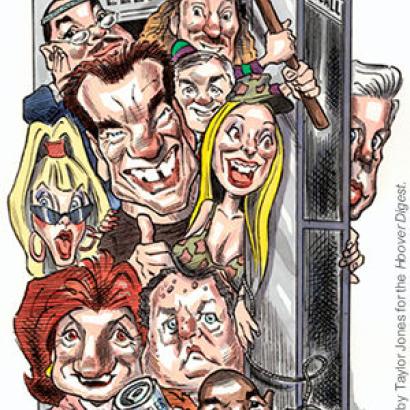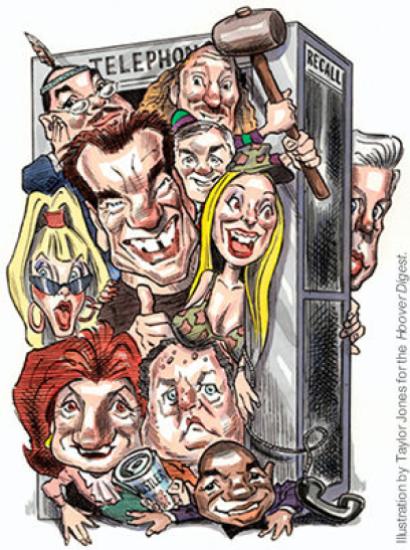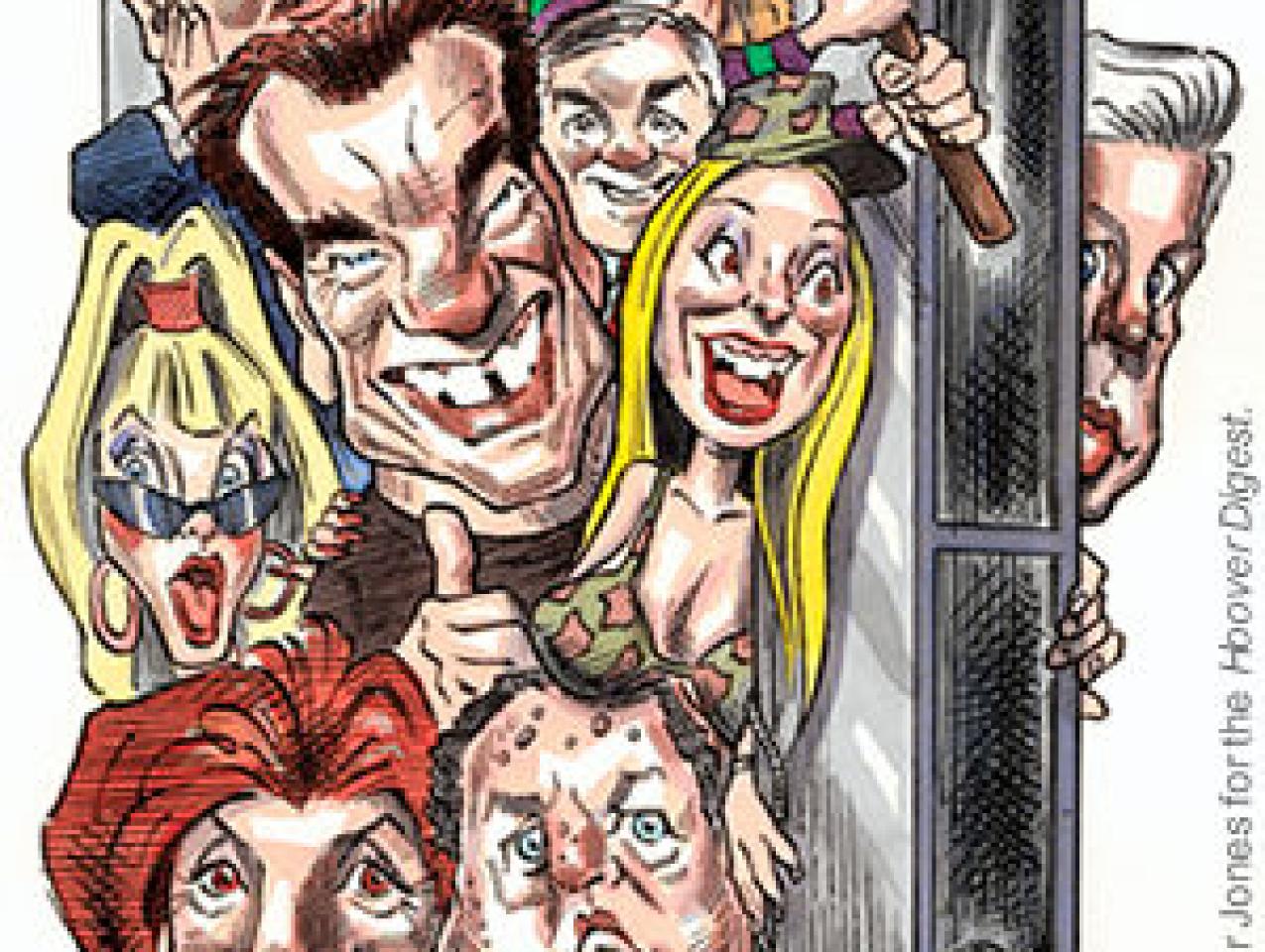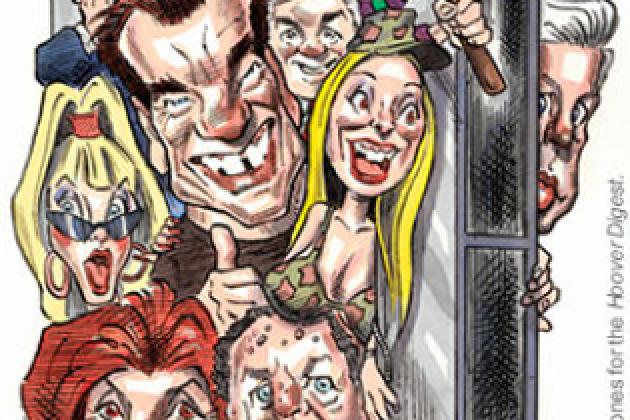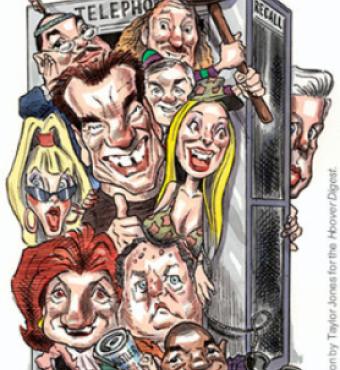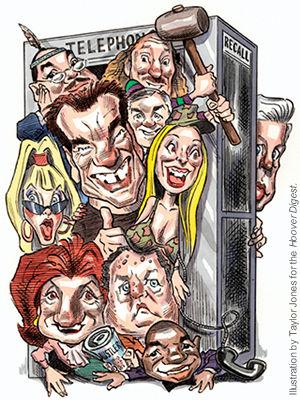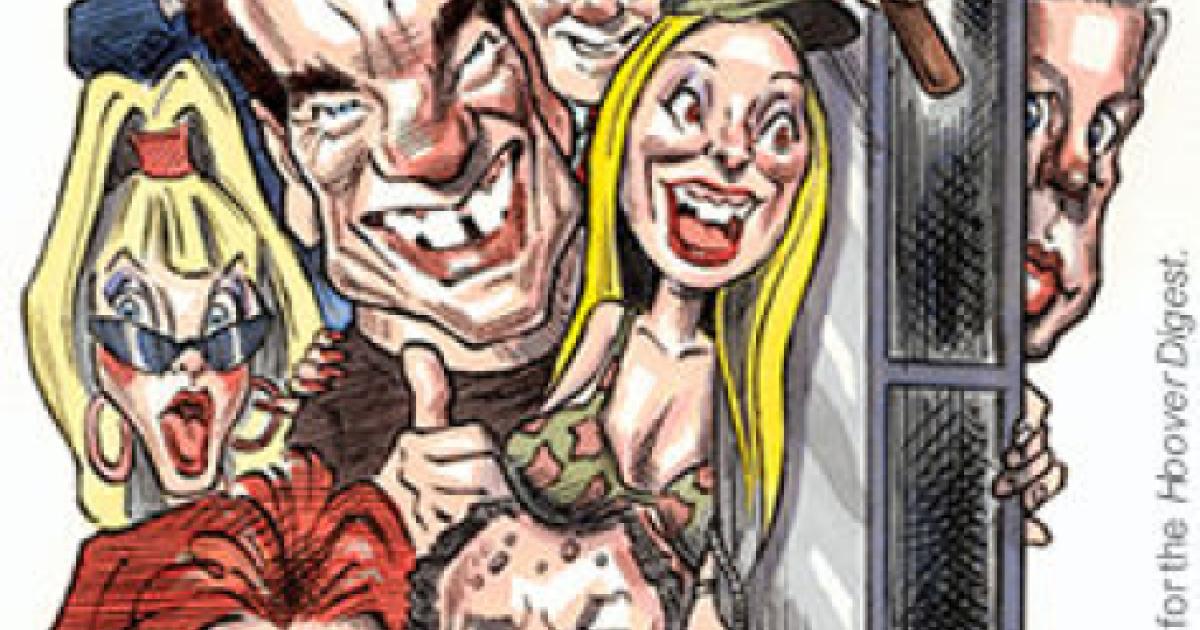- Economics
- Budget & Spending
- Politics, Institutions, and Public Opinion
- State & Local
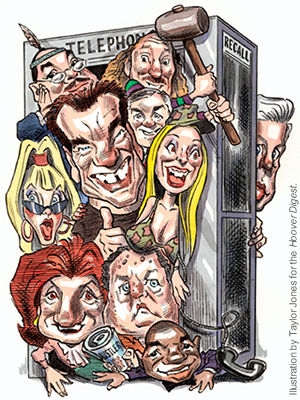
Republicans and conservatives tend to favor tax cuts for the rich, as a way to stimulate the economy. Democrats and liberals are more likely to insist that the rich be asked to pay more taxes, in the interest of fairness to all citizens.
So I was surprised to see Governor Gray Davis, of all people, calling attention to the fact that the rich pay most of the income taxes in California. Davis pointed out that California’s tax revenue has been extremely volatile because the incomes of the very rich have been volatile. The state’s treasury did very well during the dot.com boom of the nineties, precisely because that boom put so much money into the hands of the richest people. Between capital gains on stock and incentive stock options, the state of California collected an unprecedented amount of revenue in 1999.
But in December 2002, well after he was safely reelected, Davis began saying that we need a source of revenue that is not dependent on such volatile sources of income. We can’t allow the welfare of the entire state to be dependent on the fortunes of a handful of very rich people. When he began making these arguments, I was intrigued as to where a liberal Democrat like Davis might be going with this. After all, at the national level, the Democratic Party was already beginning to attack George W. Bush for giving tax breaks to the rich. Could it really be that Gray Davis was going to create some kind of tax benefit for Jerry Yang, Barbra Streisand, Larry Ellison, and all the other very rich people to fuel the state treasury?
First, let’s check out the bare facts. The rich do pay the lion’s share of taxes, both at the federal level and in the state of California. In California, taxpayers with adjusted gross incomes of more than $100,000 make up the top 11 percent of taxpayers. This highest-earning group reported 54 percent of the total income in the state and paid 80 percent of the state’s income taxes. Taxpayers with incomes over $500,000 account for less than 1 percent of total tax returns filed but pay about 40 percent of the personal income taxes paid in the state.
Tax returns at the federal level reveal a similar, though slightly less skewed, pattern. According to the Tax Foundation, the top 10 percent of U.S. taxpayers earned more than 46 percent of the adjusted gross income in 2000. These same households paid 67 percent of federal personal income taxes.
Liberals typically call attention to the first of these facts: The rich earn most of the income, making the distribution of income skewed toward the rich. This fact is a weapon in the liberal argumentative arsenal. That “the top 10 percent earn 46 percent of the income” in the United States or “the top 54 percent of the income” in California seems a compelling case for taxing the rich.
But these same liberals usually overlook the second fact: The rich are already paying most of the taxes. Progressive tax codes impose higher-percentage taxes on higher levels of income, an inevitable feature of any broadly based progressive income tax system. Some people are philosophically opposed to any redistribution at all. But apart from these few advocates of pure meritocracy, most Americans have made their peace with this feature of the progressive tax code.
These bare facts mean that any significant change to the income tax will have a disproportionate impact on the rich. They do pay most of the taxes. If government is going to decrease its income tax revenue, it has to give it back to the top of the income ladder because that is where most of it came from in the first place. This is the basic arithmetic of the Bush tax plan.
And if the rich are already paying the largest proportion of the income taxes, what can you do if you need more tax revenue? There are really only two choices: Tax the rich some more and become even more dependent on their good fortune, or tax everybody else.
When we started hearing this at the end of last year, some of us cynical economists suspected Davis was softening up the public for a massive tax increase on the middle class. And sure enough, he has proposed a one percentage point increase in the sales tax, expected to raise $4.58 billion. The sales tax is one of the more broadly based taxes, one of the taxes that everybody has to pay. But that is only another way of saying that it is not paid primarily by the rich.
Why does California need so much revenue? The state of California was flush with revenue during the dot.com boom of the 1990s. Gray Davis spent all that money while he had it, adding 44,494 new state employees to the payroll. Now that incomes of the very rich have dropped off with the stock market, Davis is in a tizzy, trying to replace all that money. Cutting state government employment is barely on his radar screen.
This is one reason Californians are so fed up with Gray Davis. By taxing rich people, the government hitches its wagon to their star. If the rich flourish, the government will be flush with revenue. If the rich tank, the government’s coffers dry up as well. People have figured out that the alternative to taxing the rich is taxing everybody else. With the business climate so bad that jobs are fleeing the state, with falling standards of living for ordinary people, nobody is interested in new taxes. Californians are interested in new leadership.
The Democratic presidential hopefuls are already taking turns promising to repeal the Bush tax cut. But they really ought to keep an eye on the recall election. Californians from across the political spectrum have had enough of tax-and-spend business as usual. If the recall is successful, that restive mood may just spread.








